Should Black America be worried about Coronavirus?
(OPINION): Black folks have a particular history with contagion and medical racism, since the days of slavery and colonialism.
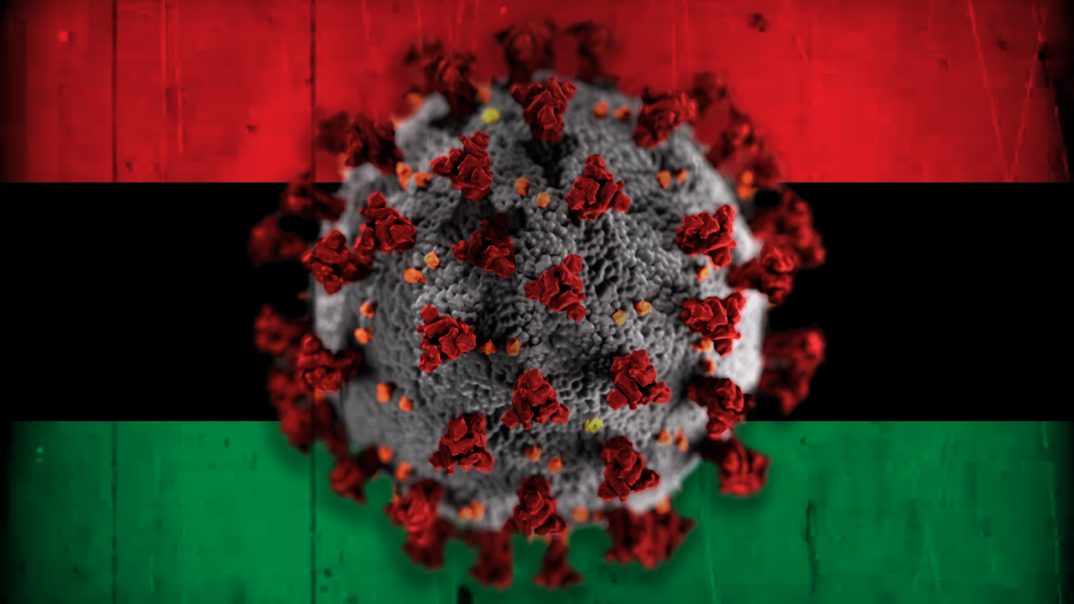
As the new coronavirus aka COVID-19 makes its way around the planet and the United States with global infections over 100,000 and current death toll upwards 3800, health officials and politicians statewide and worldwide are declaring emergency.
Even though the common flu kills globally up to over 600,000 people annually, the super contagious coronavirus with a relatively longer latency period is somehow outshining that fact, tapping into a global fear that comes with being a new pandemic.
Both in China and Italy, millions are being quarantined, stocks markets are dipping, oil prices are falling, SouthXSouthwest canceled. Cruise ships are being held at bay. And even Senator Ted Cruz is voluntarily quarantining himself after a one-minute contact with someone who tested positive to the virus. With this global backdrop, one must wonder if we are ready for all of this.
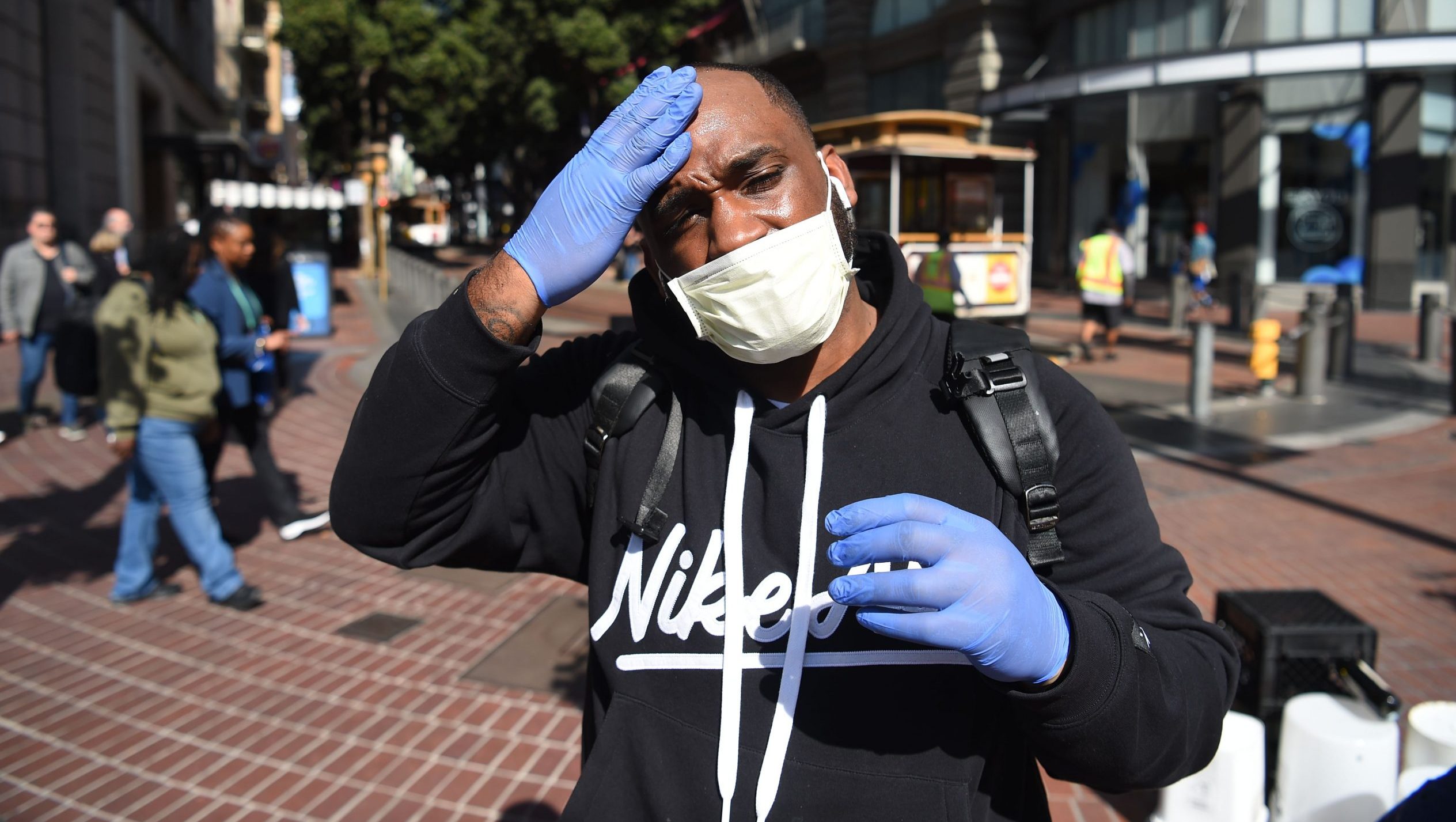
Cameron Nightingale adjusts his mask and gloves, a precaution to protect himself from coronavirus, while walking by cable car in San Francisco, California on February 27, 2020. – California said it was monitoring some 8,400 people for the new coronavirus, after officials confirmed a woman had contracted the disease without travelling to outbreak-hit regions. The Centers for Disease Control and Prevention (CDC) said it doesn’t know how the woman — who had not travelled or been in contact with another coronavirus patient — got sick. (Photo by Josh EDELSON / AFP) (Photo by JOSH EDELSON/AFP via Getty Images)
READ MORE: Waffle House employee tests positive for Coronavirus
Juliette Keyyem, former department of Homeland security official, in her essay, “The U.S. Isn’t Ready for the What’s About to Happen” for The Atlantic, the sub-headline reads:
Even with robust government response to the novel coronavirus, many people will be in peril. And the United States in anything but prepared.
And on the other hand, a piece in the TheConversion.com offers Ten Reasons you ought not to panic.
Whether all of this proves to be a very sad historical catastrophe or a massive overreaction, this is nevertheless a serious moment and begs the question: are Black people ready and what can we do to maximize preparedness in a world where Black life and health collectively struggles against poverty, muted healthcare access, disproportionate pre-existing issues, and history of medical racism.
Black folks have a particular history with contagion and medical racism, since the days of slavey and colonialism when the white man exposed us to all sorts of new diseases. George Washington wore dentures made from the teeth of African people, and enslaved Black women were used as human guinea pigs in gynecological experiments.
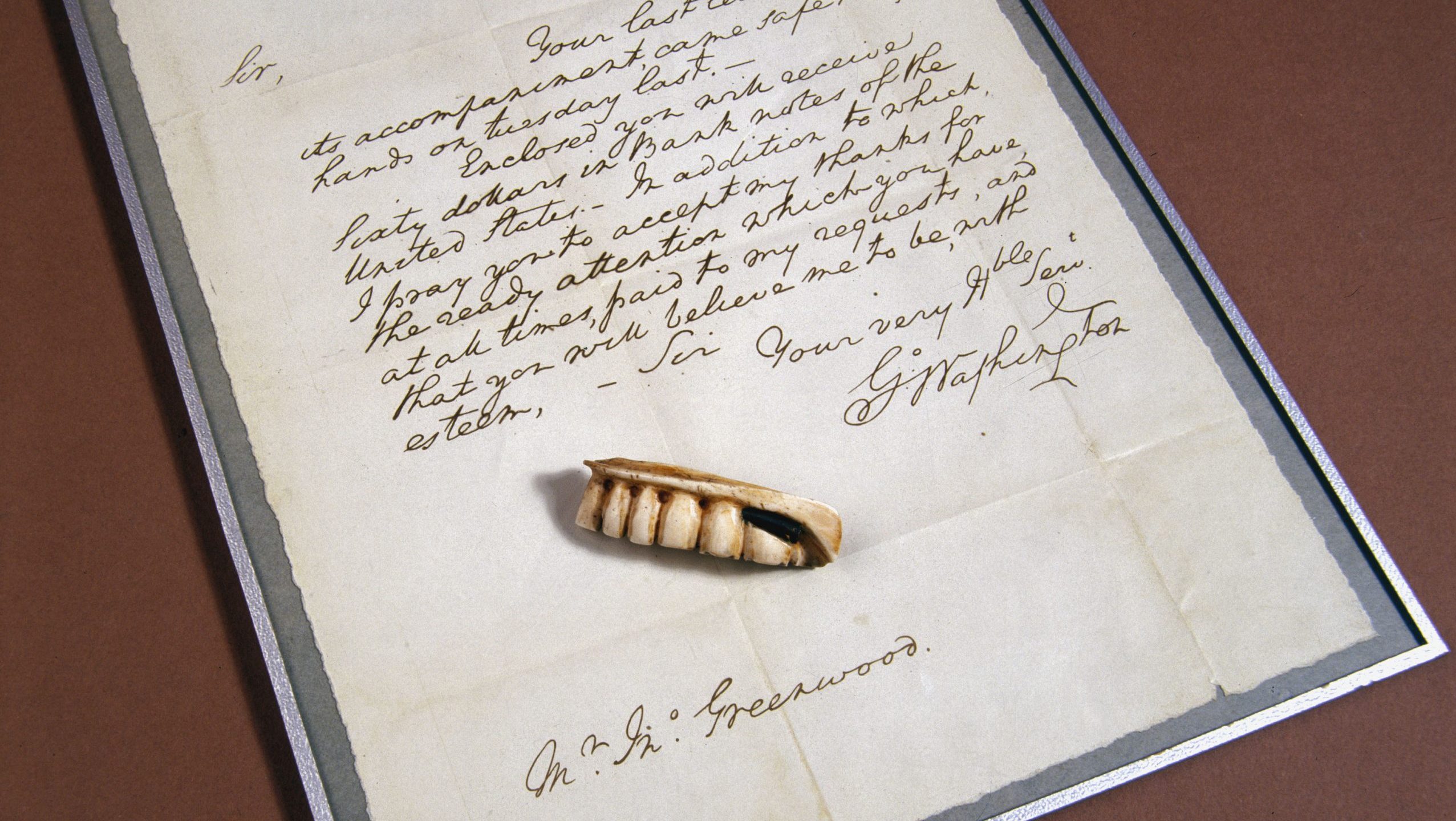
Replica of a set of dentures made for George Washington, President of the United States. The denture is shown with a copy of a letter written from him to his dentist Mr Greenwood thanking him for his attentiveness, dated 20 February 1795. John Greenwood was one of the most famous dentists of his time and made four sets of dentures for the President. The one shown here was made from a gold plate with ivory teeth riveted to it. (Photo by SSPL/Getty Images)
What’s more, the Tuskegee experiment is a reminder of how Black men were once part of a government study, and the victims of a racist conspiracy that left them untreated and ill with Syphilis for years. That history continues to fuel suspicions of the medical profession within the Black community.
Over a century ago, long before the current coronavirus outbreak, there was another pandemic with present-day implications. The 1918 flu epidemic killed 675,000 Americans, and between 50 and 100 million people globally, more than the total number of casualties in World War I.
READ MORE: New York State prisoners to make hand sanitizers to combat coronavirus
One of those who succumbed to the flu that year — in the most curious of ironies — was the grandfather of Donald Trump. One of the reasons why the flu was so deadly and spread so widely is that in America and Europe, the news media and political leaders hid the truth.
Through censorship and pressure on public health officials to lie, the public was not informed of the dangers. Woodrow Wilson, the racist president of his day who contracted the flu himself, made no public statements about the pandemic, and even enacted a law making it a crime punishable by 20 years in prison to publish information that could hurt the war effort.
Meanwhile, 1918 was the height of segregation and racial violence, when Black people were politically disenfranchised and denied health services, as white supremacy maintained theories about their biological inferiority and compromised their health, safety, education and socioeconomic status. In response to these circumstances, the black community mobilized, created institutions and hospitals and took care of their own sick people.
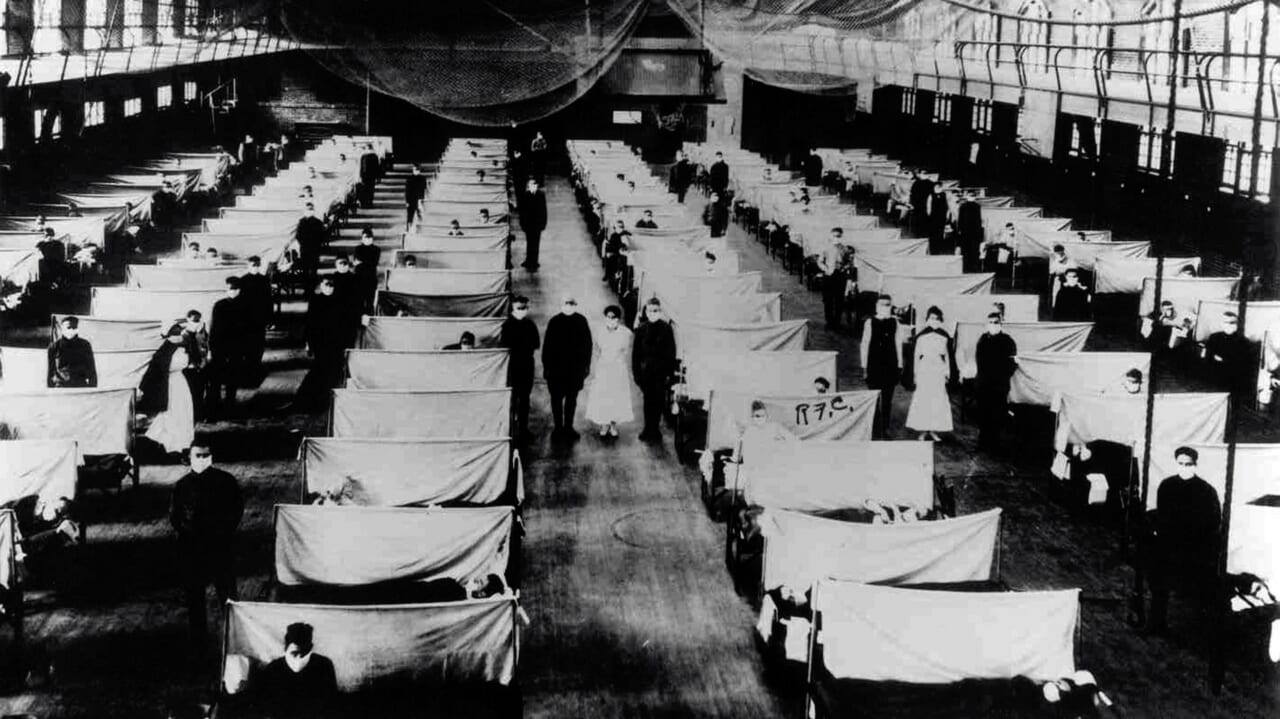
Image shows warehouses that were converted to keep the infected people quarantined. The patients are suffering from the 1918 Influenza pandemic, a total of 50-100 million people were killed. Dated 1918 (Photo by: Universal History Archive/Universal Images Group via Getty Images)
“There’s lots of reasons for distrust around medicine for black people, and the distrust of medicine is not monolithic. There are reasons why certain kinds of people are afraid of medicine,” said Dr. Steven Thrasher, assistant professor at the Northwestern University Medill School of Journalism, Media, Integrated Marketing and Communications told theGrio.
“Some are legitimate, some are not. But we have a long history of being tested on against our will, and also at the same time of being disproportionately harmed by diseases and outbreaks, and so I think it’s important to take this stuff seriously.
“I’m not aware yet of racial breakdowns of how this is playing out nationally, but certainly in terms of my own research which is primarily about HIV and police violence and gun violence, these things always disproportionately impact us. So I’m particularly worried,” he added.
READ MORE: LeBron refuses to play if Coronavirus keeps fans barred from arenas
Today, faced with a president who lies to your face about the gravity of the coronavirus crisis, the Black community must be vigilant. There is no telling what Trump will do to exploit the pandemic to further his white supremacist policies, lest you forget the 70,000 migrant children already locked up in ICE detention centers, including Black children from Africa, the Caribbean and Latin America.
Understanding the context of American medical racism should inspire an awareness and diligent plan of action especially when confronting a potentially deadly infectious disease such as COVID-19.
First we must all do our part in minimizing the spread of this virus. According to the World Health Organization, the advice is: we should wash our hands frequently, maintain social distance, avoid touching your face, practice good respiratory hygiene, and if you have fever, cough and hard breathing seek medical attention.
Secondly, separate facts from fiction. Just because Black folks are not the face of the coronavirus, does not mean we have special protection. The low numbers here and in Africa might be more about Black folks’ conservative practice of traveling outside their country and general segregated domestic travel patterns in the U.S.
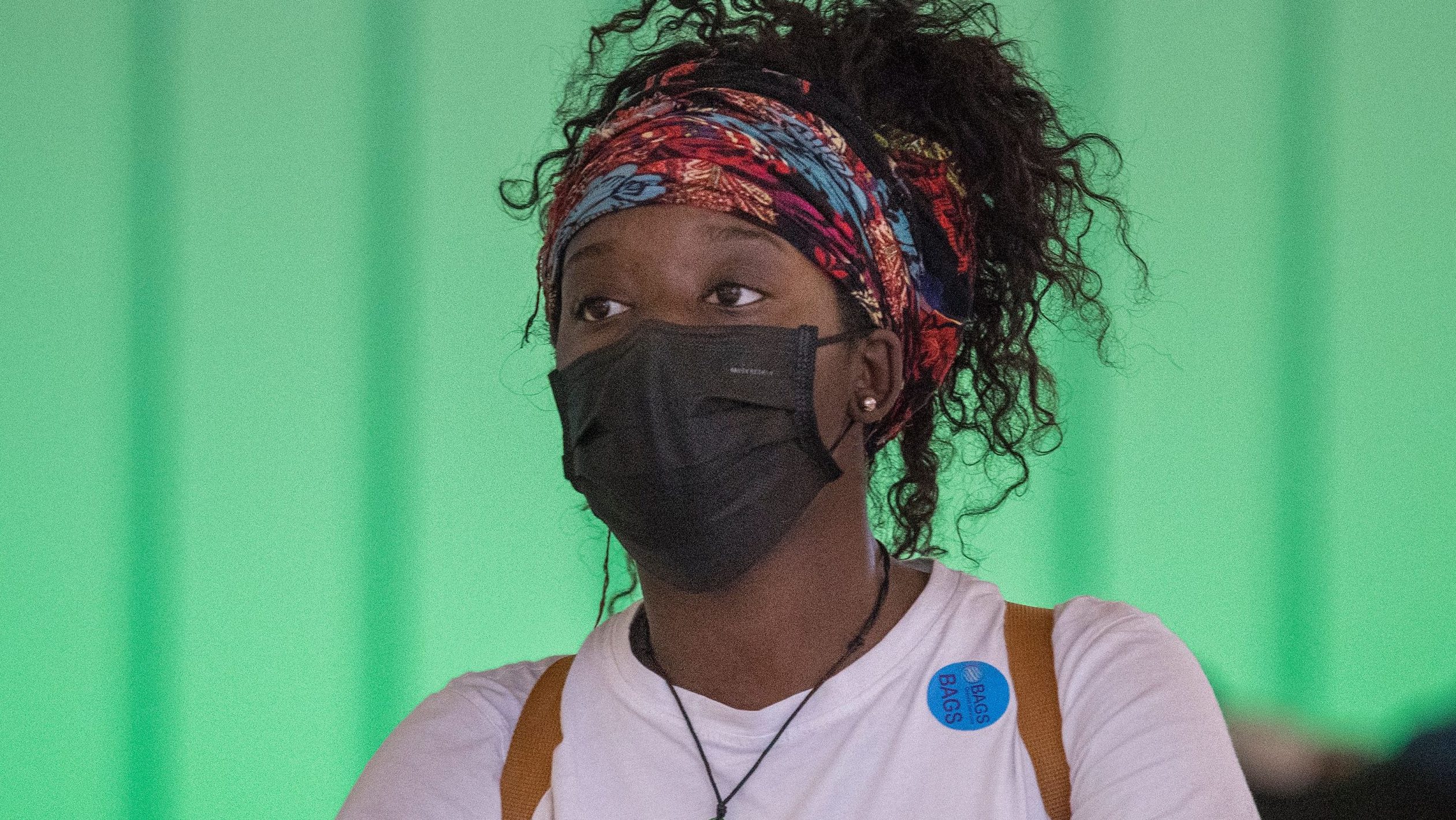
A woman wears a face mask to protect against the COVID-19 (Coronavirus) after arriving at the LAX airport in Los Angeles, California on March 5, 2020. – California has declared a state of emergency as the number of novel coronavirus cases and deaths in the US continues to climb. (Photo by Mark RALSTON / AFP) (Photo by MARK RALSTON/AFP via Getty Images)
In fact, BBC reports that Africa has more than 30 cases including countries such as Egypt, Nigeria and South Africa.
The COVID-19 gravely affects seniors and people with pre-existing conditions, such as compromised immune system, hypertension, cardiovascular diseases and diabetes. As Bloomberg news reported, top Coronavirus doctors in Wuhan, China, say high Blood pressure is major death risk. Since hypertension affects African Americans in higher numbers we must pay attention.
Contracting and falling ill to the coronavirus cannot be the way you find out you have diabetes or heart disease. This is why having access to regular medical care to know your pre-existing conditions is a smart way to protect oneself and one’s community from the harm and spread of infectious diseases like the coronavirus.
So areas in our community where medical care is especially lacking, like in prisons and the homeless population, we should be intelligently worried. Dr. Thrasher also points out that, “homelessness is a huge driver of incarceration, and those are two ways where the coronavirus could affect Black people very badly.”
When we think of world changing disasters, we think of big things, like hurricanes, tornadoes, earthquakes or maybe even some gigantic meteorite headed our way. But history has shown us repeatedly that it is the little things, the microscopic elements that we need to really worry about.
Whether it is the black plague, influenza, polio, HIV, infectious diseases are beyond scary, testing human’s capacity and social politics for survival. And while natural disasters and pandemics may create some level of surface unity around a common enemy, it also promotes systemic privileges, and exposes the most vulnerable among us, when the stakes are at their highest.
Chances are great that COVID-19 will be contained and that a vaccine will be found and the biggest casualty here will be our fleeting fear of extinction. Chances are also great that this new coronavirus will expose the best and worst of what lurks in the cytoplasm of our humanity.
And whether the source of the pandemic is lab created or natural, medical racism and mistrust are real things, and so we must be prepared, nevertheless for now and for the future. The best way to do that going forward is to advocate for the best preventative care and healthcare system access, before the cough, before the chest pain, before the hospital visit and before the grave.
Opinion articles reflect the thoughts and opinions of the authors and do not necessarily reflect the opinions of theGrio and its staff.
